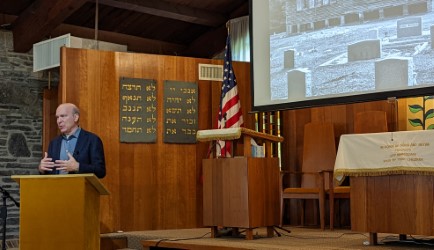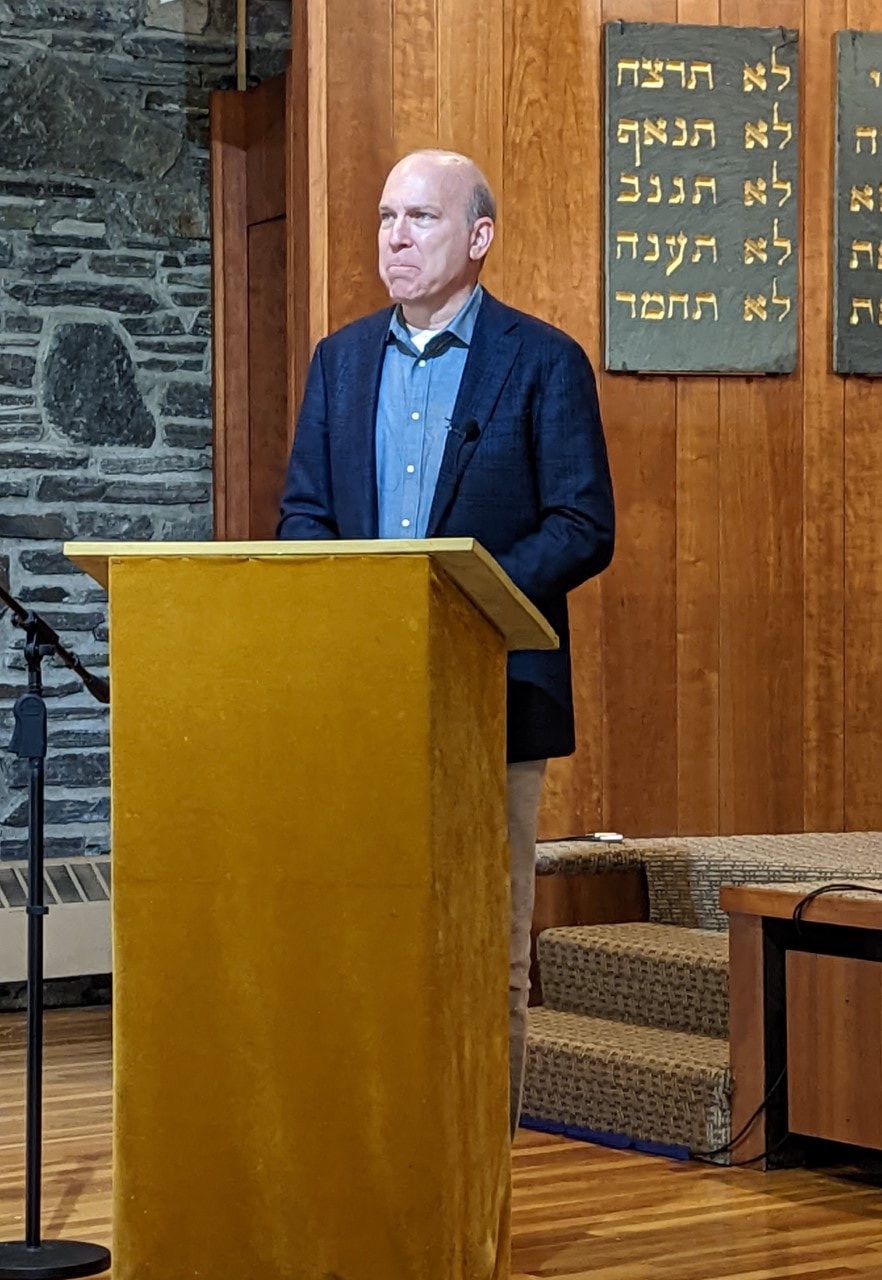 On Oct. 2, 2022, Temple Beth Israel Preservation Society (TBIPS) of Danielson, CT, hosted a program with the author Andrew Feiler about an extraordinary and little-known partnership between a Jew and an African American coming together at a watershed moment in philanthropic history that would change the course of education for Black children in the American South. Mr. Feiler’s photo/documentary book, “A Better Life for Their Children,” chronicles the extraordinary building of 4,978 schools in the Jim Crow South to address the significant education gap between Black and White students – a gap so significant prior to World War I that was greatly reduced as a direct result of the most unexpected partnership. Born to German Jewish immigrants in Illinois, Julius Rosenwald was a modest man who, despite never completing high school himself, sought to help his fellow man achieve a better life through education. Booker T. Washington, born into slavery in Virginia, believed in the notion of lifting community through learning. Washington went on to become the founding principal of Tuskegee Institute, and Rosenwald, the owner and president of Sears, Roebuck & Company. These two men from such seemingly different backgrounds joined forces and, in 1912, at a time when 90% of African Americans lived in the South, created the first of the Rosenwald schools - simple structures with lots of windows to let in the light, pot belly stoves to provide heat, and classrooms kept pristine, providing Southern Black students with something largely taken for granted by Whites – spaces conducive to learning. Those same buildings doubled as civic spaces for town meetings. During the 1930’s, one third of Southern Black children were educated at a Rosenwald school and, over the decades, they would graduate 700,000 children. Together, Washington and Rosenwald continued building these institutions until 1937, with the last being named for Eleanor Roosevelt. Only 500 of these structures survive today, but 100 of those are on the National Register and many are undergoing restoration. Graduates of these schools include James Baldwin, Toni Morrison, Medgar Evers, Maya Angelou, and Congressman John Lewis. In addition to the schools, over 500 fellowship grants were awarded between 1928 and 1948 to such critical figures as renowned photographer and prominent documentary photojournalist, Gordon Parks; opera sensation, Marion Anderson; and leader of the Harlem Renaissance, Langston Hughes. Mr. Feiler set about chronicling this significant history in 2015 and notes that the people he met along the way - former students who became teachers and keepers of history - are the heart and soul of the story. He approached Congressman John Lewis to write the forward and, while initially reluctant for fear he wasn’t qualified to write about the history of the schools, the Rosenwald graduate known for his motto, “Be optimistic, think long term and make good trouble,” agreed to the proposal. Think of it, Mr. Feiler points out, today, the State of Georgia’s two senators are an African American and a Jew - “they stand on the shoulders of Rosenwald and Washington.” TBIPS, in perfect alignment with its mission of social justice programming, hosted the event, funded by a grant from the CT Humanities Council and individual donors, at its own historical landmark synagogue. The program was free of charge to students, faculty, and faith communities in Eastern Connecticut, and live streamed nationally. A lively Q & A session and book signing followed the program. The Preservation Society also donated copies of Mr. Feiler’s book to the libraries at nearby Rectory School, Pomfret School, Woodstock Academy, The Drop-In Center in New London, and the New London NAACP, all of which sent students, faculty, and leadership to attend the event. The program is available for streaming. Click below: www.youtube.com/watch?v=uHbmKyn6O2A&ab_channel=CommunityVoiceChannel Comments are closed.
|
© All Rights Reserved - Temple Beth Israel Preservation Society 2024


 RSS Feed
RSS Feed